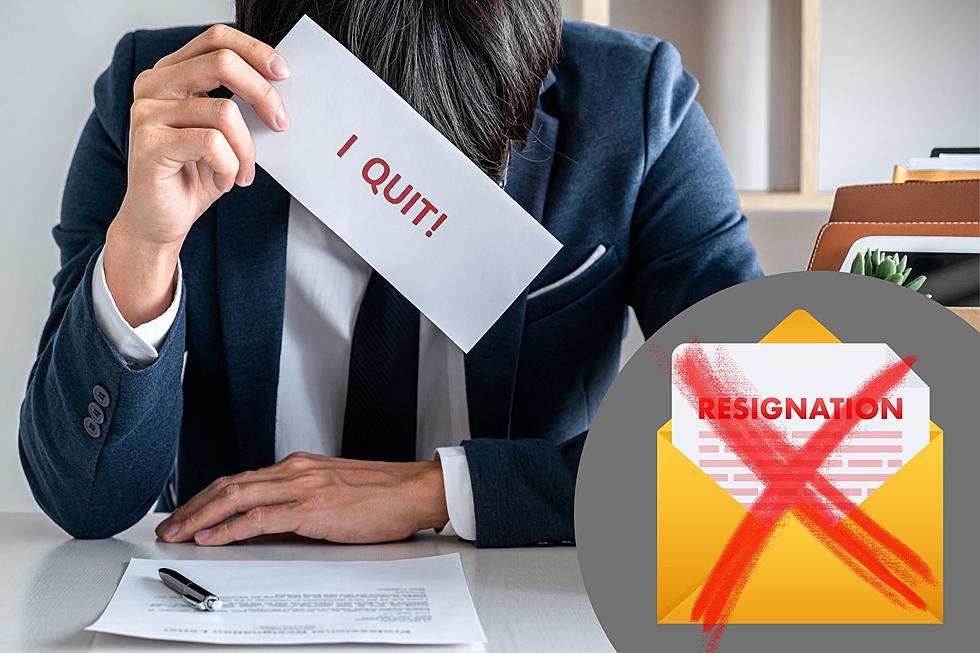
Ghost Quitting: Here’s Why People Are Skipping Resignation Letters In NJ
Moving on from a job can bring forth a a slew of different emotions. It can be freeing yet depressing all at the same time.
You're excited for a new adventure, yet you know you'll feel a slight ache in your heart from missing for former co-workers. There are certain people, however, who have admitted to only feeling joy and relief when leaving a place of employment that started to take a toll on their mental health.

That's why so many people have resorted to what's now somewhat widely known as "ghost quitting." It's gaining popularity everywhere, including right here in the Garden State.
What constitutes "ghost quitting?"
To keep it short and sweet, "ghost quitting" is a phrase that's been coined to explain the act of walking away from a job or a place of employment without having submitted a resignation letter. Is it unprofessional? Sure, some might see it that way. Certainly, management would see it that way.
A new study shows, however, the chaos that comes with an employee "ghost quitting" might be exactly what that person intended.
In a recent survey by the folks at Preply, they examined what quitting a job looks like all across the US. They've determined that people aren't as graceful about moving on from a company as they once were.
When it comes to "ghost quitting," one in 5 people, on average, up and leave their current positions without letting their employer know ahead of time. The other statistics are shocking, as well.
Average resignation statistics as discovered by Preply:
- Over 1 in 10 managers report being unjustifiably yelled at by an employee about their experience
- A whopping 72% of managers admit that exit interviews are more about formality than actual feedback
- Over 1 in 10 Americans have written emotionally charged reviews of former employers on platforms like Glassdoor or elsewhere online
- 1 in 8 employees have admitted to timing their resignations to cause maximum disruption to their employer
The fact that people are planning when to leave based on when it'll be the most inconvenient for the rest of the company shows just how burned out and overworked people are. It'd be a safe bet to say these statistics will only get worse if the workload put on one single person doesn't change.
To check out the study for yourself, click HERE.
Hey, look! 9-5ers aren't the only ones quitting their jobs...
Actors Who Quit Movies During Production
10 Times All But One Member of a Band Quit at Once
Gallery Credit: By Selena Fragassi

